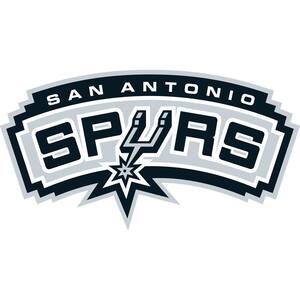Post by Myles (SAS) on Jun 17, 2013 0:07:52 GMT -5
There are 4 different things here in the contract decisions time. If you have any questions about it, ask them here.
Renouncements
This is the most important step. Every player that was on your team and had his contract run out is still in your team's control, and has a cap hold on him. The cap hold counts against your salary cap until he signs a new contract or until you renounce him.
Pros of renouncing
You have more salary cap space to sign FAs.
Pros of not renouncing
If you intend to resign the player, you retain his bird rights, meaning you can offer him more money and more years than any other team can.
You may S&T this player.
YOU ARE FREE TO RENOUNCE YOUR PLAYERS AT ANY TIME DURING FREE AGENCY.
Options
If you have any team options, you can accept or decline them now. If you already did that in the options thread, no need to worry.
Players will accept or decline their player options at this step.
IMPORTANT NOTE: Declining their option does not renounce the player. You can decline the option and still try to resign them to a bigger deal. If you intend to renounce the player, and you or they declined their option, you have to take the extra step to say that you are renouncing said player.
2nd Rounders
They are not signed to guaranteed deals. You may elect to sign your 2nd rounders to 1-3 year deals, you can send them overseas to develop, you can trade them before they are signed and they won't have any salary implication (no contract yet), or you can cut them.
Qualifying offers
Players whose rookie deals have expired may be offered something called a "qualifying offer." This is a 1 year deal that they may accept. If they don't accept right away, that makes them a Restricted Free Agent (RFA). RFA's work the same as any other free agent with one notable exception: if an RFA signs a deal with another team, you may agree to match that offer and the player is yours. You hold a huge advantage when you have the RFA status attached to your young player.
Renouncements
This is the most important step. Every player that was on your team and had his contract run out is still in your team's control, and has a cap hold on him. The cap hold counts against your salary cap until he signs a new contract or until you renounce him.
Pros of renouncing
You have more salary cap space to sign FAs.
Pros of not renouncing
If you intend to resign the player, you retain his bird rights, meaning you can offer him more money and more years than any other team can.
You may S&T this player.
YOU ARE FREE TO RENOUNCE YOUR PLAYERS AT ANY TIME DURING FREE AGENCY.
Options
If you have any team options, you can accept or decline them now. If you already did that in the options thread, no need to worry.
Players will accept or decline their player options at this step.
IMPORTANT NOTE: Declining their option does not renounce the player. You can decline the option and still try to resign them to a bigger deal. If you intend to renounce the player, and you or they declined their option, you have to take the extra step to say that you are renouncing said player.
2nd Rounders
They are not signed to guaranteed deals. You may elect to sign your 2nd rounders to 1-3 year deals, you can send them overseas to develop, you can trade them before they are signed and they won't have any salary implication (no contract yet), or you can cut them.
Qualifying offers
Players whose rookie deals have expired may be offered something called a "qualifying offer." This is a 1 year deal that they may accept. If they don't accept right away, that makes them a Restricted Free Agent (RFA). RFA's work the same as any other free agent with one notable exception: if an RFA signs a deal with another team, you may agree to match that offer and the player is yours. You hold a huge advantage when you have the RFA status attached to your young player.




